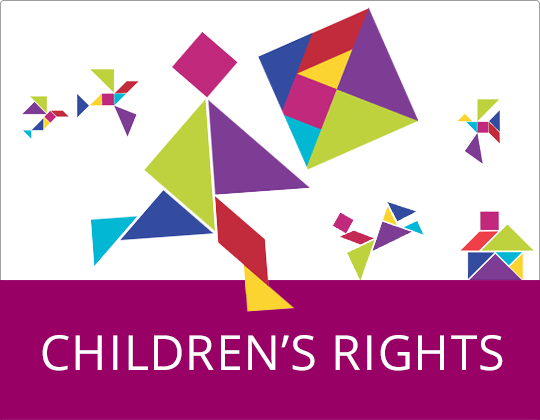Monitoring children's rights
Monitoring member states’ compliance with human rights standards is crucial to the Council of Europe's work. The Council of Europe carries out monitoring by conducting country visits to member states and by requiring governments to report on the reform measures they have taken. In addition to the judicial complaint mechanism provided by the European Court of Human Rights, the Council also provides for other individual and collective complaints systems such as the European Committee on Social Rights.
Compliance in law and practice

The following bodies of the Council of Europe have a role to play in the monitoring of the protection of children’s rights:
European Committee for the Prevention of Torture and Inhuman or Degrading Treatment or Punishment
The European Committee for the Prevention of Torture and Inhuman or Degrading Treatment or Punishment (CPT) is a non-judicial preventive mechanism set up under the European Convention for the Prevention of Torture and Inhuman or Degrading Treatment or Punishment. The CPT conducts visits to detention centers with the aim to protect persons deprived of their liberty against torture and other forms of ill-treatment. During its visits the CPT also assesses the situation of children and dedicates specific attention to children’s rights in its reports.
Children’s rights and the European Committee for the Prevention of Torture
Council for Penological Co-operation
The Council for Penological Co-operation (PCCP) follows the developments in national policies and practices in the field of execution of penal sanctions and measures in the Council of Europe member states. The PCCP has drafted several Recommendations on juvenile justice, including the European Rules for Juvenile Offenders Subject to Sanctions or Measures. They finalized a report in 2014 on violence in institutions for juvenile offenders.
Lanzarote Committee
The Lanzarote Committee systematically monitors the implementation of the Council of Europe Convention on the Protection of Children against Sexual Exploitation and Sexual Abuse (Lanzarote Convention, CETS No. 201). The Lanzarote Convention is the most ambitious and comprehensive legal instrument on the protection of children against sexual exploitation and sexual abuse..
European Commission against Racism and Intolerance
The European Commission against Racism and Intolerance (ECRI) is composed of independent experts that monitor problems of racism, xenophobia, anti-Semitism, intolerance and discrimination on grounds such as race, national or ethnic origin, colour, citizenship, religion and language.
European Committee on Social Rights
The European Committee on Social Rights (ECSR) monitors the conformity of member states’ national law and practice with the European Social Charter, which complements the European Convention on Human Rights in the field of economic and social rights. Many of the rights of the Social Charter relate exclusively to children, such as Article 7 (the right of children and young persons to protection).
Venice Commission
The Venice Commission is the Council of Europe’s advisory body on constitutional matters. It provides legal advice to its member states and helps them bring their legal and institutional structures into line with European standards in the fields of democracy, human rights and the rule of law. In 2014 the Venice Commission published a report on the protection of children’s rights in constitutions.
European Commission for the Efficiency of Justice
The European Commission for the Efficiency of Justice (CEPEJ) is composed of experts from all 47 member states of the Council of Europe. The commission’s objective is to promote the rule of law and the protection of fundamental rights in Europe. It works to improve the functioning and efficiency of justice systems by collecting data and monitoring. A special part of the monitoring process focuses on the treatment of juveniles in the justice system.
Group of Experts on Action against Trafficking in Human Beings
The Group of Experts on Action against Trafficking in Human Beings (GRETA) monitors the implementation of the Council of Europe Convention on Action against Trafficking in Human Beings (CETS No. 197). The convention provides for special measures and procedures for children in the context of victim identification and requires that assistance provided to child victims be adapted to their special needs.
Group of Experts on Action against Violence against Women and Domestic Violence
Group of Experts on Action against Violence against Women and Domestic Violence (GREVIO) monitors the implementation of the Council of Europe’s Convention on preventing and combating violence against women and domestic violence (Istanbul Convention, CETS No. 210). The convention introduces a number of criminal offences for physical, sexual and psychological violence for which harsher sentences are required when the offence is committed against, or in the presence of, a child. The legislative measures taken pursuant to the convention shall be based on an integrated approach which also protects child victims of domestic violence.



